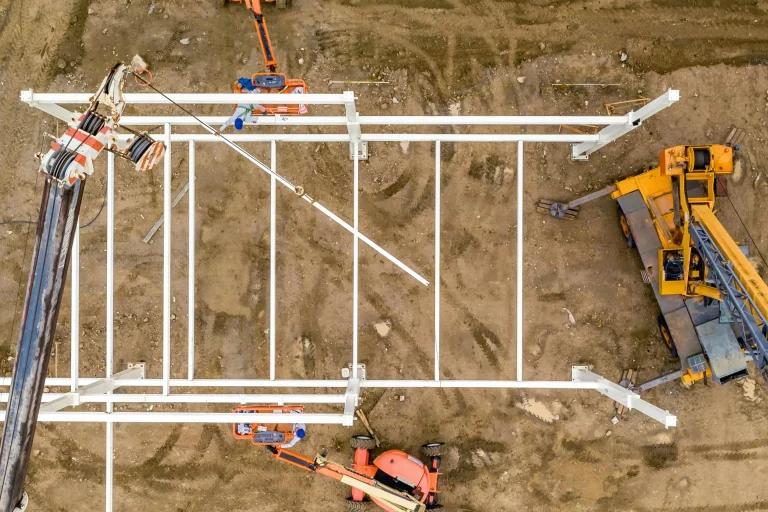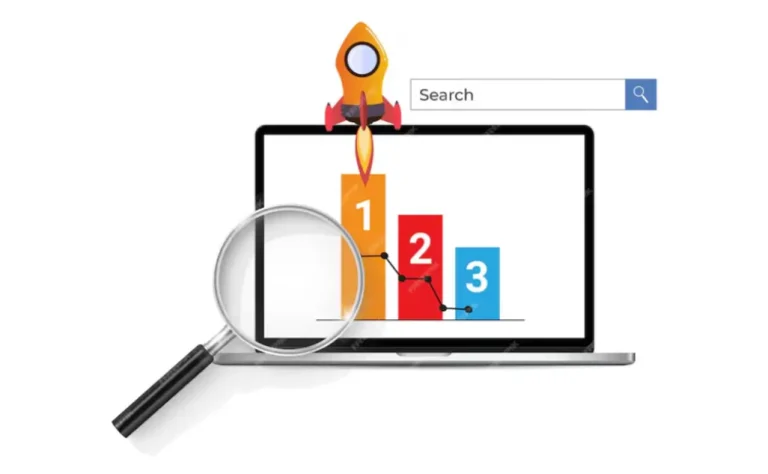How to Make a Custom WordPress Website Design that Attracts Prospects?
WordPress is a popular CMS that allows you to build and manage your online business. But, if you want to achieve success, simple designs are not enough. Instead, you should bet on custom WordPress website designs that are able to get you more customers.
Custom design can do a lot of great things. They allow you to include relevant content, interactive elements, and a wide range of features that enhance the user experience. But how to make one?
We will cover this topic today!
Custom WordPress Websites are a Must
But first, you need to understand that custom websites are a must-have these days for any business owner who wants to provide the best user experience for their clients.
Unlike ready-made themes that are widely available online, custom pages are specifically tailored to meet the unique needs of your business and your target audience.

With custom WordPress design, you have the freedom to work with design companies and create a site that reflects your brand, mission, and vision. You can choose from a wide range of customization options and, as a result, create a web that stands out from the crowd.
Although the customized design may come with an additional cost, it is a worthwhile investment in the long run as it helps your business establish an extraordinary and strong online presence.
What’s more, custom WordPress websites offer tons of features that can help your business grow while also providing a platform that can be easily updated and maintained.
Therefore, business owners should consider investing in tailored sites to take their online presence to the next level. 💪
The Benefits of Having a Customized Design
We can point out many benefits of designs that are tailored to one’s needs.
First, having a design that is both attractive and customized can greatly benefit your business goals. For example, completely custom website designs can provide an engaging browsing experience that will successfully attract potential customers and will provide you with many new brand fans.
A well-designed, tailored site can also improve search engine optimization efforts, making it easier for visitors to find your page through online searches. As a result, customized webs allow you to optimize them for SEO, ensuring it appears at the top of search results for relevant keywords.
Furthermore, when investing in a completely tailored design, you can make an informed decision about its functionality. You can work with a web design team to create a site that reflects your brand identity, presents your products or services, and meets your specific requirements.
Moreover, if you use custom themes, you will integrate a range of flexible design options, including:
- custom fields,
- dream custom fonts,
- and interactive elements.
These design options can help enhance the user journey and make your site stand out from competitors.
Additionally, a custom web design can improve the content creation process, making it easier to publish and manage content on your page. And, to boost your site even more, you can take advantage of many add-ons, like SEO plugins, custom form plugins, or some caching plugins.
Steps you Need to Take to Get a WordPress Web Custom Design

#1 Understand Your Target Audience
The very first step you need to take is to identify your target audience and their preferences. So, before embarking on any custom development project, you need to define their demographics, interests, and behaviors, as well as their preferred design trends and aesthetics.
Thanks to this move, you can create a web that is both aesthetically pleasing and functional and ensures that the customization process is streamlined and efficient.
Also, you must understand your audience’s pain points and how your website can solve them, as this is essential for driving customer conversions. Knowing what issues your target audience is facing helps you create content that resonates with them and motivates them to take action.
💡 How to do that: An effective way to understand your audience’s pain points is to use their feedback, like survey answers. Therefore, ask your customers what challenges they face and how your site can provide solutions. You can also use analytics to identify areas where customers are struggling and make improvements to your page to address their needs.
#2 Set Your Website Goals
After that, it’s high time to set goals and objectives. This involves determining the desired outcomes and actions you want your web visitors to take, such as making a purchase, submitting a contact form, or signing up for a newsletter.
At this stage, it’s crucial to determine the key performance indicators (KPIs) that you will use to measure success. These can be tracked using tools such as Google Analytics and Google Search Console, which provide valuable insights into site traffic, user behavior, and other metrics.
Or you can also entrust this task to a design agency that will take care of it for you.
💡 How to do that: You can utilize SMART goals. Such goals are specific, measurable, attainable, relevant, and time-bound. These goals provide a clear framework for achieving success and can be used in a wide range of contexts, from personal to professional settings.
#3 Design Your WordPress Website
Creating or tailoring a WordPress theme is a key part of the design process for any custom WordPress development project. This can involve selecting a pre-existing theme that aligns with your brand identity or working with an expert team to create a custom template from scratch.
During the graphic design phase, it’s important to consider the types of sites and design elements that will appeal to your target audience, including a wide variety of design services that support your text-based content and core functionality.
A project manager can help ensure that the design process runs smoothly and is aligned with your overall strategy while also providing a detailed guide on best practices and design trends.
💡 How to do that: Custom WordPress development provides flexibility and options to make your web will stand out from competitors and appeal to your target audience.
#4 Optimize Your Website for Search Engines
Then, you should optimize your favorite theme for search engines. That’s why you need to conduct keyword research to identify the terms and phrases that your audience is really searching for.
It is crucial to consider a wide range of factors when optimizing your website for search engines, including incorporating on-page SEO elements such as meta tags and headers, as well as ensuring that your site is mobile-friendly and loads quickly.
That’s so essential, as by optimizing your web for search engines, you can increase your visibility online and attract more traffic. This can ultimately lead to higher conversion rates and greater success in achieving your business objectives.
💡 How to do that: Use tools like Google Keyword Planner or Ahrefs to identify relevant keywords and phrases. Then, use keywords in your web copy, meta descriptions, headers, and image alt tags to help search engines understand the content of your site. Thankfully, content management systems like WordPress are SEO-friendly and offer plugins that can help with on-page SEO.
#5 Create Content that Converts
After that step, you should craft compelling copy that speaks to your target audience’s pain points and needs. Attractive copy is an important aspect of any website design project, as it helps to communicate your message and connect with people. This involves working with a content writer to create high-quality materials.
Don’t forget about calls-to-action (CTAs) on your site as well to encourage users to take the desired action. CTAs can be used to promote:
- sign-ups,
- purchases,
- or any other action that aligns with your objectives.
Finally, it’s important to keep in mind that creating lots of content is not always better. Rather, focusing on creating high-quality, relevant content that resonates with your target audience is key.
💡 How to do that: Use attention-grabbing headlines to draw readers in and make them want to read more. The most important thing is to create content that provides value, answers questions, solves problems or provides useful information. It’s also good to create content that is easily shareable on social media. Therefore, include social media sharing buttons on your web and within your blog posts.
#6 Test and Improve Your Web
And, of course, be sure you regularly test your website’s performance and make improvements based on your KPIs. Yes, it’s super important, as it ensures that the page is meeting its goals, whether that is to generate leads, increase conversions, or drive traffic to your site.
Also, by testing the page and analyzing user behavior, you can identify areas where your web’s design and functionality can be improved to provide a better user journey. And that’s not all, as you can also improve your SEO rankings, detect errors and bugs early, monitor your site, and enhance conversion rates.
💡 How to do that: You need to understand that this stage is an ongoing process that involves analyzing data, gathering feedback, and making targeted improvements. Therefore, use the right tools, exploit A/B testing, and collect feedback from your audience using surveys, polls, etc.

Bring your Designs to Life
Custom WordPress website designs are important because they allow businesses to create a unique and tailored online presence and allow businesses to stand out from competitors who use ready-made themes.
If you haven’t tried custom WordPress designs yet, maybe it’s high time to change that?







